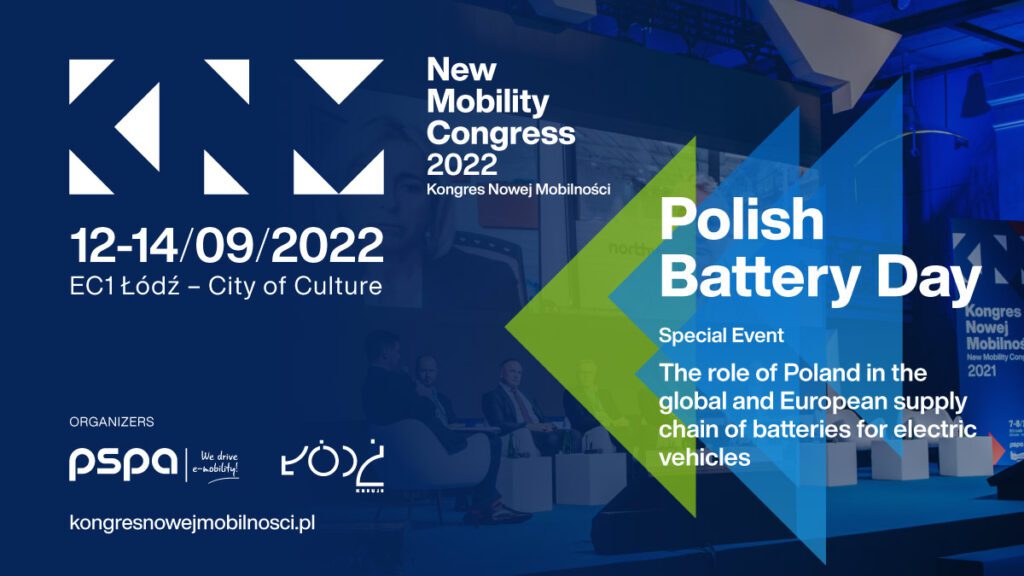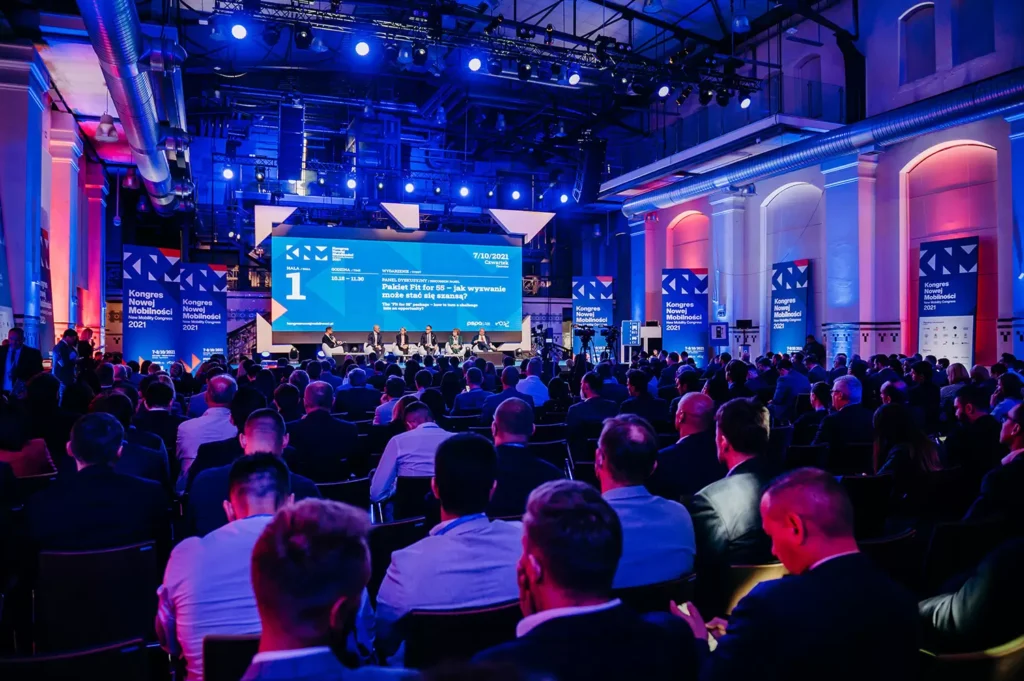The export value of traction batteries accounts for more than 2% of Poland’s GDP and is expected to grow in the coming years. To maintain the leading position in Europe and the world, it will be necessary to maintain the prosperity and business conditions for this area. Equally, it will be necessary to develop innovation in the Polish electromobility ecosystem. How this can be achieved will be debated by an international group of battery experts at the New Mobility Congress 2022, the largest conference on electromobility in the CEE region.
The development of electromobility and sustainable transportation is positively affecting many sectors, including the production of batteries for zero-emission vehicles. According to BNEF analysts, demand for them will increase from 269 GWh in 2021 to 2.6 TWh by 2030 and 4.5 TWh by 2035. Poland is in a strong position against this backdrop, as it is Europe’s largest and the fifth largest global supplier of lithium-ion car batteries or their components. As of the end of 2020, the value of exports in this area had reached about 400 million euros per month, and battery cells account for 2% of all Polish exports.
Thus, our country is heavily involved in the construction of the European and global value chain of the battery sector, and according to BloobergNEF’s estimation, has a chance to maintain its leading position in this area, at least until 2025. The global reputation is mainly due to LG Energy Solution, whose plant in Kobierzyce near Wroclaw is Europe’s largest e-vehicle battery factory, which will eventually reach a production capacity of 100 GWh and increase employment by another several hundred people (to a total of about 10,000 employees). Such a figure will possibly allow the plant to meet more than half of the production needs of electric vehicles (EVs) on the Old Continent. In addition, the country is also home to plants of such companies as Northvolt, Dailmer, BMZ, Umicore, Impact Clean Power Technology, Capchem, SK IE Technology, Exide Technologies, PCC Rokita and Shida, LS EV Poland and Guotai Huarong.


– Foreign capital involved in the transformation of the transportation sector represents an opportunity for Polish companies, whose role is no longer reduced to being mere cooperators. They are increasingly becoming equal business partners with their own engineering and development facilities, offering products dedicated to e-mobility of the highest quality. What is needed now is to use this potential to create an effective ecosystem in the era of progressive electrification for the benefit of, among others, the labor market, the end customer and the entire Polish economy, for which the automotive sector is absolutely crucial,” – says Maciej Mazur, Managing Director of the Polish Alternative Fuels Association (PSPA).
According to data from the European Automobile Manufacturers Association (ACEA) for the first quarter of 2022, electric vehicles recorded a 10% share (up 53.4% from the first quarter of 2021) among all registered cars. Increased demand for e-vehicles translates into increased demand for a key component, traction batteries.
– Poland has become a European production center for lithium-ion batteries. In 2021, exports in this area were worth more than €6.5 billion. The impressive growth rates go hand in hand with the European trend of shortening supply chains and building a local sustainable battery market. In support of this sector, the European Commission has established the Batt4EU initiative, with €925 million from the EU’s Horizon Europe program. According to the Ministry of Development, the value of the European market for cell and battery production in 2025 is estimated at around €250 billion, – analyses Aleksander Rajch, External Relations Director of the Polish Alternative Fuels Association.
Experts point out that the dynamic growth in demand for electric vehicles and their key components could be a major challenge for the automotive industry involving, among other things, the need to guarantee the supply of lithium-ion cells in a multi-year perspective. This opens up a wide range of opportunities for the Polish battery sector and entities that plan to build more battery and component manufacturing plants in our country. An important thread of the discussion will be ensuring and maintaining the CEE region’s innovation in technological areas.
During the „Polish Battery Day” thematic track at the New Mobility Congress, international experts, industry representatives and legislative representatives will discuss the future of the traction battery market, projects supporting innovative investments throughout the R&D and production chain, further technology and infrastructure investments, and recycling issues. The program of the New Mobility Congress 2022 will not be short of dedicated debates and report launches, including: „Europe run on Polish lithium-ion batteries” and „Fire safety of EV and battery systems.” The panels will also address issues related to new technologies and innovations in the battery market in the CEE region, human resources, and proposed legislation regulating the battery field.
Polish Battery Day 2.0 will be attended by representatives of industry leaders, including: LG Energy Solution, Northvolt, Impact Clean Power Technologies, Wamtechnik, Capchem and many others. For the second time, the event’s substantive partner will be Business Finland, so Congress participants will learn about the synergies of the Polish and Finnish lithium-ion battery fields and become familiar with Finland’s innovative strategy for sustainable development of the sector.
The New Mobility Congress will be held on September 12-14, 2022 in Lodz, Poland.
A detailed program of the Congress can be found on the website: https://kongresnowejmobilnosci.pl/program-knm/
Register at: https://kongresnowejmobilnosci.pl/rejestracja/
